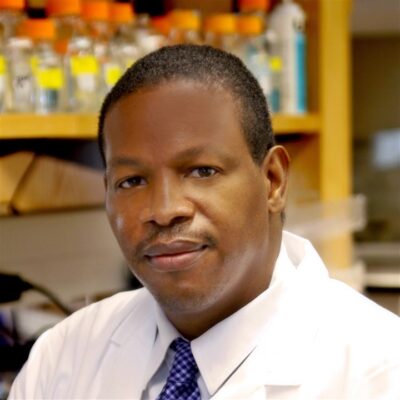Whoever discovers and administers a vaccine for the coronavirus and brings a halt to the pandemic gripping the planet, has a chance to go down in history as the 21st century’s answer to Jonas Salk. Dr. Donald J. Alcendor, of the historically black institution Meharry Medical College in Nashville, Tennessee, is solidly in the running for that legacy.
In mid-April, Alcendor, who is leading the research team at Meharry, told NBC News that they are two weeks away from testing an anti-viral to treat COVID-19—an important step closer to finding a preventive vaccine. The news came at about the same time it was revealed that African Americans were dying at disproportionately high rates from the virus and its complications in the United States.
In 2016, Alcendor and two colleagues at Meharry helped develop a treatment for the zika virus that was wreaking havoc worldwide at the time. Alcendor has published numerous papers on his zika research since then. Some of what they learned then, he said, is being applied to their work on coronavirus.
“It’s similar to what we did with zika,” he told NBC News. “But in comparison to zika, this is through the roof. We didn’t have the deaths or the spread. This is a much bigger scale. All the marbles are on the table.”
A vaccine is still expected to take 12 to 18 months to bring to the public, according to numerous experts. An anti-viral, on the other hand, can be produced in weeks, and it would be an exponential leap from the preventive measures in place now: hand-washing, social distancing, stay-at-home orders and the like.
“With a drug, an anti-viral that can shut down virus replication and reduce inflammation in those patients, then you’re likely to hold off a crisis that’s likely to happen; allow those patients that might be at the brink to recover,” Alcendor said.
Meharry president James Hildreth instructed Alcendor and the rest of the educators and researchers at his pioneering medical school to put their experience and expertise to use in what has turned into a competition among the nation’s top institutions to create a vaccine. Alcendor, an associate professor of microbiology and immunology, said that with campus and facilities closed because of the pandemic, he and his colleagues have been able to spend even more time in the lab.
By the end of April, infections in the United States had surpassed 1 million, and deaths from the disease were more than 60,000.
Alcendor, who earned his masters at Louisiana State, his doctorate at the University of California-Davis and did post-graduate work at Johns Hopkins and the National Institutes of Health, is originally from Opelousas, Louisiana, and got his undergraduate degree at another HBCU, Southern University in Baton Rouge.
–David Steele






